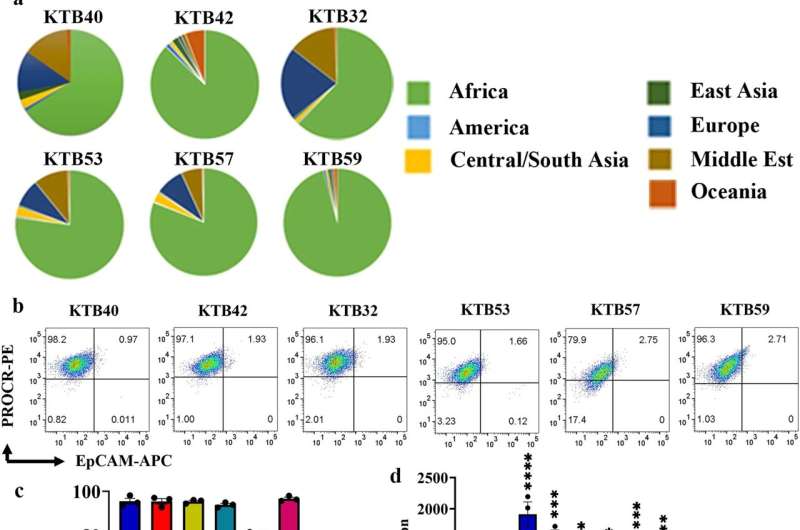This article has been reviewed according to Science X's editorial process and policies. Editors have highlighted the following attributes while ensuring the content's credibility:
fact-checked
peer-reviewed publication
trusted source
proofread
Researchers identify biology behind aggressive breast cancers in Black women

Researchers at Indiana University Melvin and Bren Simon Comprehensive Cancer Center are unlocking the biology behind aggressive breast cancers in Black women.
Led by Harikrishna Nakshatri, Ph.D., this study could lead to new targeted treatments to lessen the disparities in breast cancer among Black women. Nakshatri is the Marian J. Morrison professor of breast cancer research at IU School of Medicine and a researcher with the Vera Bradley Foundation Center for Breast Cancer Research at the IU Simon Comprehensive Cancer Center.
"It's commonly known that although breast cancer incidence is low among Black women, outcomes are poor. They develop breast cancer at a younger age and have a higher incidence of the more aggressive triple negative breast cancers," Nakshatri said. "Even after you correct for socioeconomic and health care access factors, still African ancestry is associated with the worst outcomes."
For that reason, the Nakshatri lab has been focused on understanding how genetic ancestry influences the biology of normal breast tissue and how it factors into the development of aggressive breast cancers.
Nakshatri's research previously found that normal breast tissue in women of African ancestry contains a cell type called PZP at a much higher number when compared to normal breast tissue of Caucasian women. PZP cells increase when Caucasian women develop breast cancer, while they are naturally higher in Black women.
Now, Nakshatri and colleagues have discovered that PZP cells can influence how cancer cells behave and grow as they interact with another cell type—epithelial cells—where breast cancer generally originates. Additionally, they have found that PZP cells are one of the cells of origin for rare and aggressive metaplastic breast cancers (MBC), which account for less than 1 percent of all breast cancers.
These findings were published recently in the journal Nature Communications.
Researchers used tissue samples from the Susan G. Komen Tissue Bank at the IU Simon Comprehensive Cancer, the world's only healthy breast tissue bank.
"We found when these PZP cells are in association with the epithelial cells, the PZP cells start making a protein called interleukin-6 (IL-6). The epithelial cells start behaving differently, and a signal called STAT3 gets activated," Nakshatri said. "That's how it will make tumors developing from the epithelial cells more aggressive."
These discoveries form the basis of a new clinical trial. The study, led by Kathy Miller, MD, is slated to open later this year. Miller is the Ballvé Lantero professor of oncology at IU School of Medicine and associate director of clinical research at the cancer center as well as a researcher with the Vera Bradley Foundation Center.
"This work is based on the biology of the normal breast, which is rarely used in deciding the treatment," Nakshatri said. "We think this study could help us determine if physicians need to consider genetic ancestry of the person when deciding on possible treatments for breast cancer."
More information: Brijesh Kumar et al, Stromal heterogeneity may explain increased incidence of metaplastic breast cancer in women of African descent, Nature Communications (2023). DOI: 10.1038/s41467-023-41473-6

















